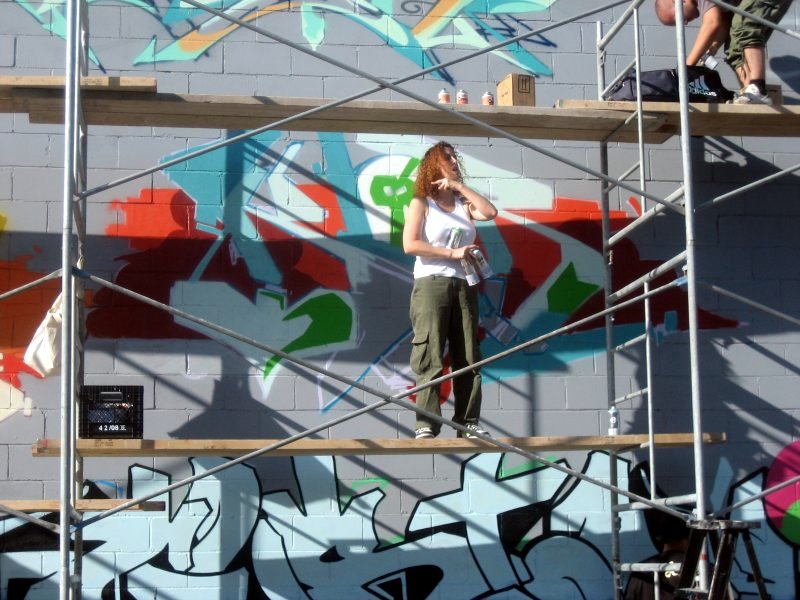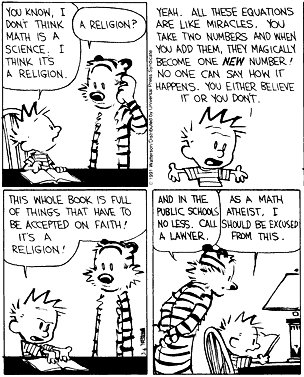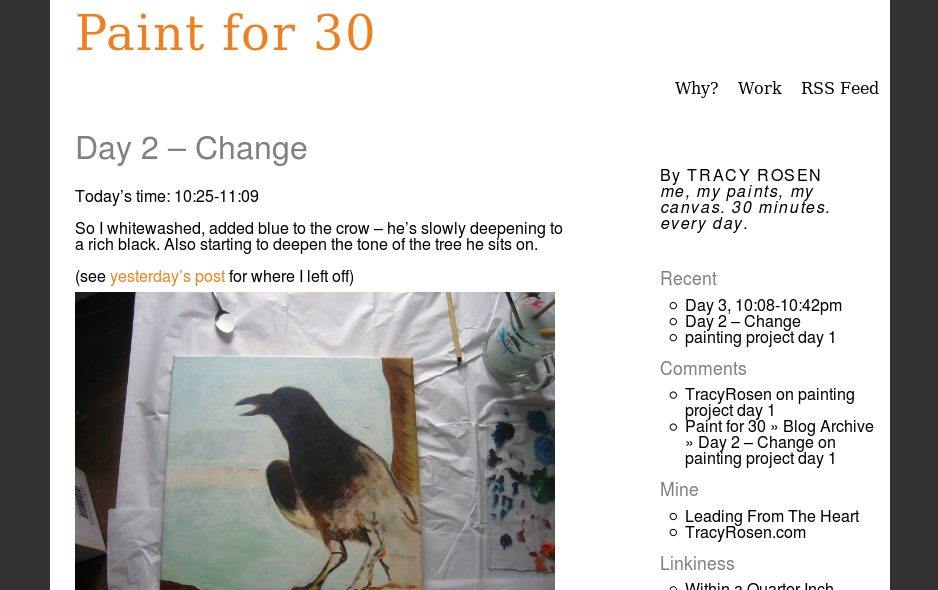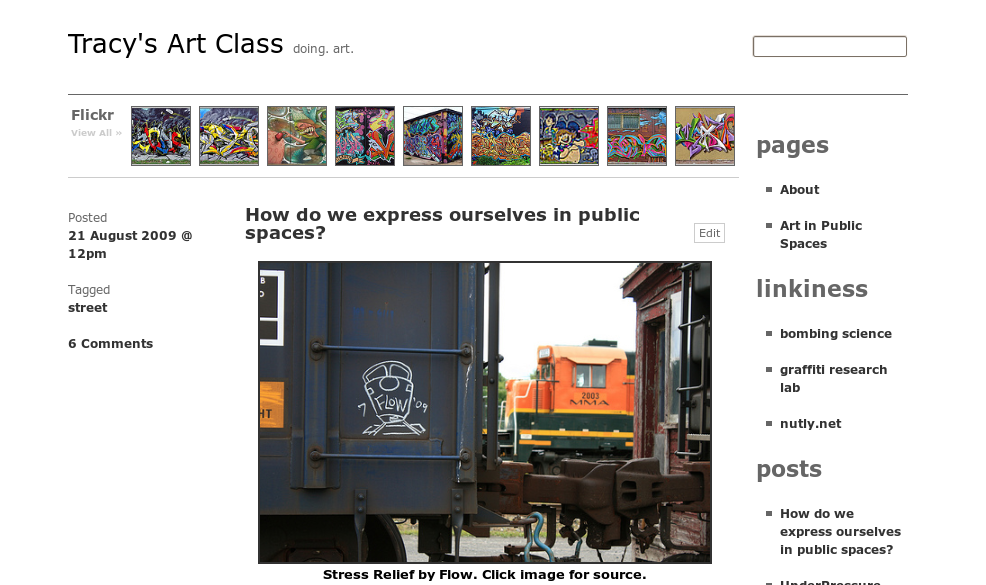What a week. I’m sure we all say the same after the first week back with students in September! I had a few 14 hour days last week and this is really the first time my head feels clear enough to reflect on my first week with new students and a new organizational structure at Directions Alternative School. I decided to frame this post with the lessons I learned.
Lesson 1: Though it was fun (ish) don’t plan a huge, physical field trip for the first day of school.
I say ish because, though it was fun meeting the new students and seeing them interact outside of the classroom, I am a big baby with heights and for some reason agreed to the plan during our pre-schoolyear meeting to spend the day zip-lining at Morin Heights. Yes, I had to be rescued part of the way. I should have known from my panic-ridden chair lift ride up the mountain that perhaps I don’t need to make my way through an obstacle course while attached to a wire by 2 clips some 50 odd feet from the ground.
We left for the trip at about 8:30 am and returned around 5:30. We then had to meet to separate our students into leadership groups and talk about the following few days of classes. Though a beautiful sunny day in the country, it had been both physically and mentally exhausting. It left me with very little energy for the ensuing 3 days of classes. Great trip for a Friday or the day before a holiday, not for the first day of school!
Lesson 2: Confident kids don’t make fun of others
By watching the group dynamics both in my classes and out of them, during lunch or other break times, I am noticing more and more that the students who are the most self-assured do not make fun of others. The students who aren’t do. The lesson in that is for me (us) to create conditions that promote the growth of self-assurance, confidence in my classroom, our schools.
Lesson 3: Change is hard
I’m sure that zip-lining was not the only cause for exhaustion this week. New students, new head teacher, new schedules. There have never been schedules in our program before. We always planned things on what was needed at the time. We also always had the same students all day and this year we are subject-specific teachers rather than core teachers. A lot of change at once. It is tiring to get used to. Much more so for some of the returning students. I had one student write, in his welcome day essay, Yesterday was probably the best thing about this whole year. Other ones have made similar noises. The lesson from this is that change is hard and I (we) need to remember that change is even more difficult for students in need (emotionally, academically, socially) and to give them the time and space to adapt.
Lesson 4: I love spending time with my students
When I woke up yesterday morning I thought WHY did I offer an art field trip to my students for the first Saturday of the school year? What, am I crazy? We met in Montreal (they live in Chateauguay, I live in Ontario, an hour away) at 1 and had a great day. We made our way to the Meeting Of Styles outdoor painting site at 1825 Cabot (Les Papiers M.P.C), spent some time there, took loads of photos, then walked around my old neighbourhood in St. Henri and visited a few art galleries. Before going home we stopped by the graffiti site again and I am so glad I did! I spotted someone I know writing high up on a wall, called out to him, and may have found the perfect guest teacher for art class :) His writing name is Fluke. I was so excited about it and all the girls who came with me could say about it is – does he have a girlfriend? (He’s a cutie.) All told, we spent 4 1/2 hours walking and looking at art, save for about 30 minutes for lunch. A great day. The lesson here, I plan things because I think they are good ideas. Don’t give up on the plan because you’re tired. In fact, the day energized me in a way that would not have been possible had I stayed at home. I love spending time with my students.
I’m planning on asking the 3 students who came with me to create a post at our art class blog, with images and commentary on the day. I’ll let you know when it is done. For now, here is a picture from the day. If you are a friend of mine on facebook you can see a few others at MOS art trip 2009.

Lesson 5: Life doesn’t stop because it is the first week of school
I was eating corn the other night and my top left front tooth shifted position. I managed to move it somewhat back into place but couldn’t quite close my jaw properly. It’s a crown. I went to my dentist and turns out I bent the post and managed to crack off some of the existing tooth structure. He repaired as much as he could as a short-term solution so I can finally close my mouth BUT I will be needing an implant. Front tooth. Ugh. Surgery, time, money. What a time for it to happen, eh? Lesson learned here is that life does not stop because I am busy. Managing all of the different elements in my life is important so that surprises like this don’t throw me way off track. It helps to have a wonderful dentist who agreed to stay late to see me so that I wouldn’t have to take time off of work during my first week.
Lesson 6: The more I learn, the more I need to learn.
Last January I withdrew from the PhD program I had started the previous January. I was a slave to two schools. What a horrible way to live something I love – teaching. So it was important for me to stop. However, I miss learning. I really do. I miss that feeling of excitement as I see things connect, as I feel my new learning integrate with the old, creating new knowledge. I feel it throughout my pores. So I decided to go back to school but in a way that makes more sense for me right now. I am starting with one online course at Seneca College (Toronto) and am working my way toward an Intercultural Relations Certificate. Here is the description from Seneca College:
Globalization brings the peoples of the world closer together. However, discrimination and other forms of intolerance continue to cause problems. In our increasingly multicultural society these issues can lead to exclusion and inequality, often along racial and ethnic lines.
This on-line program is a direct response to learning needs identified by a broad range of representatives from human services and justice agencies who recognize that racial inequity and negative stereotyping are significant social problems. In this six course certificate in Intercultural Relations, learners will examine diversity issues in a social context, explore critical differences in cross-cultural communication and identify the sources, causes, forms and manifestations of these issues in our society.
I chose this program because I find myself working more and more with students who live these realities, in particular my Native students though certainly not only them, and I find myself witness to some adults in the school system – who are meant to care for them – who continue the negative stereotyping and enable the inequities that exist. The more I see and the more I learn, I want to learn more. The lesson here is to learn from my heart. This online Certificate course at a small college is more in line with what my heart needs than the PhD course at the well-known university I decided to leave 9 months ago.
So, here are some of the lessons I learned this week. What about you?



